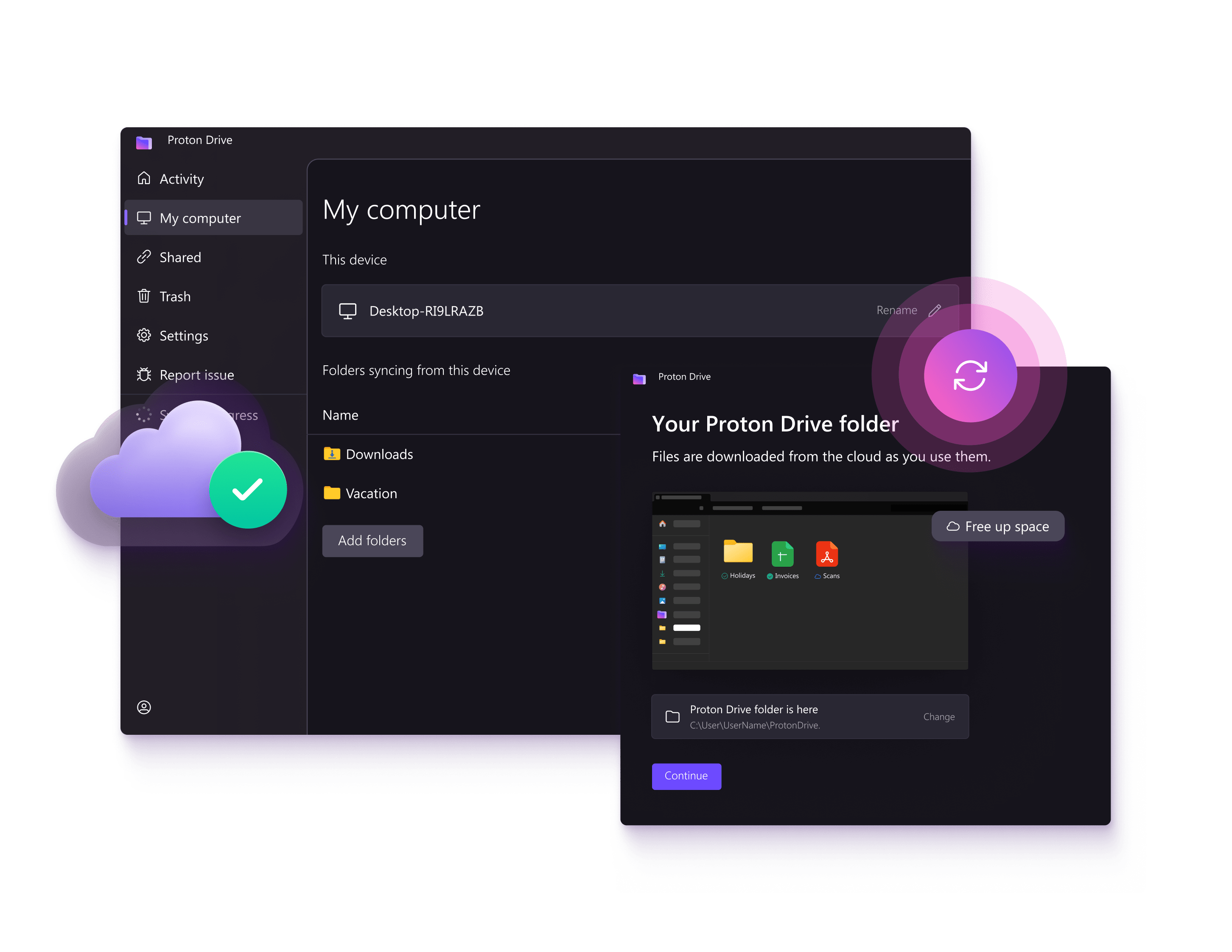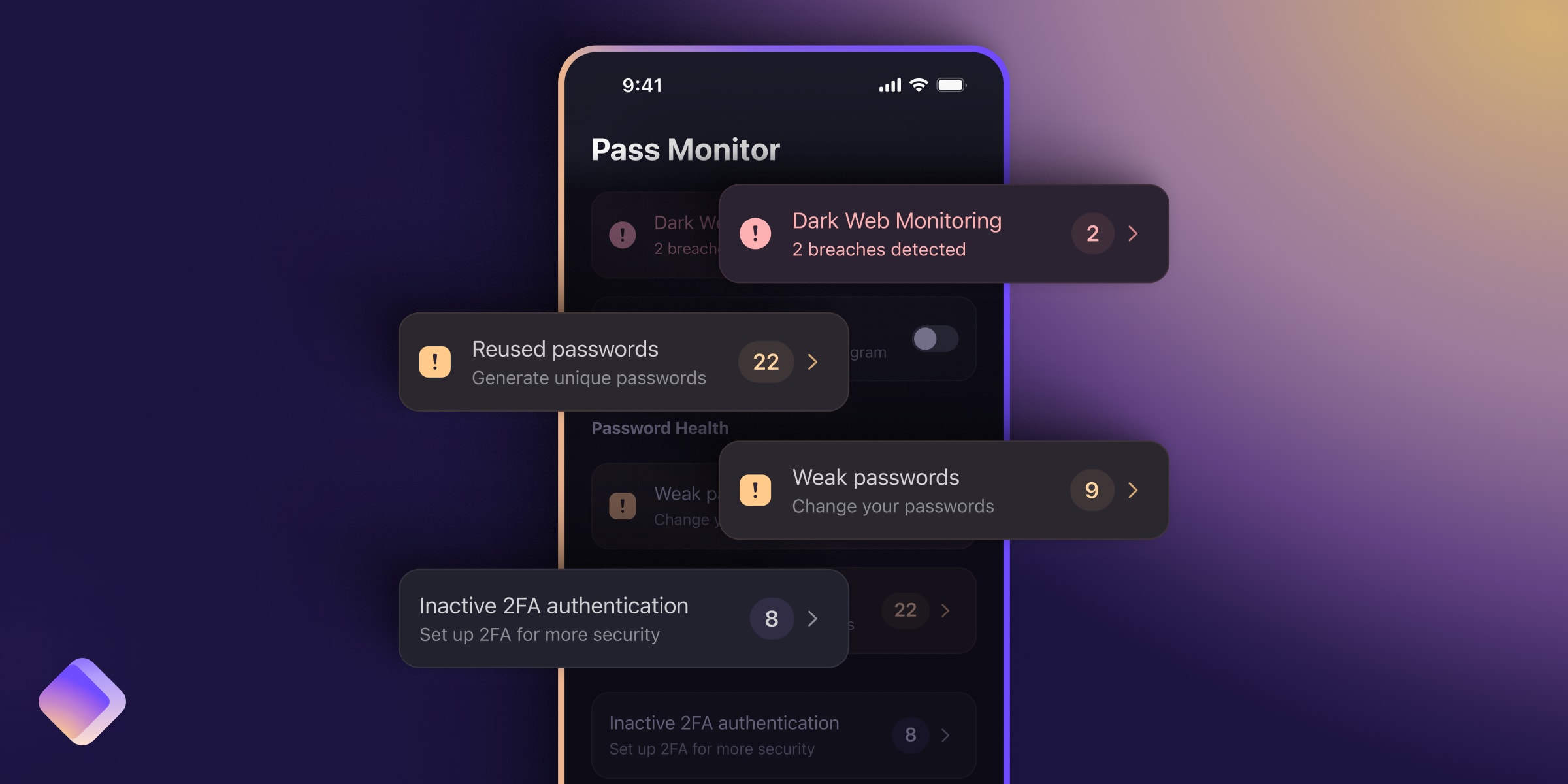At Proton, we aim to create a privacy-centric internet that empowers people worldwide to regain control of their digital lives. Today, we’re excited to announce our next step toward this better internet with the launch of the long-awaited Proton Drive Windows app.
With the Proton Drive Windows app, syncing your files and photos is effortless, allowing you to access them from any device. Now, you can automatically back up your files from your Windows device to our end-to-end encrypted cloud. This ensures continuous accessibility, even if you lose your laptop or encounter technical issues. And with Proton Drive’s version history feature allowing you to recover your files if you fall victim to a ransomware attack, your files have never been safer. You can use the Proton Drive Windows app with Windows 10 and 11.
Free encrypted cloud storage for Windows
Proton Drive for Windows also preserves our unique end-to-end encryption, meaning no one else, not even Proton, can decrypt your synced files. This encryption doesn’t just cover your files’ contents but also their metadata, including file and folder names, file sizes, dates uploaded, and more. Like all Proton apps, Proton Drive for Windows will be made open source, meaning anyone will be able to independently verify that our encryption works as described. Proton Drive also uses cryptographic signatures to verify the authenticity of your files and prevent data tampering.
Beyond our end-to-end encryption, Proton Drive, as a Swiss company, also protects your data with Swiss privacy laws, which are among the strongest in the world. Proton also never stores your files on third-party cloud services. All your data is stored on servers we own and operate in Europe, and these servers are further protected by full-disk encryption.
Seamlessly sync any folder to the cloud
The Proton Drive Windows app provides a seamless way to upload and download files to the cloud and keep everything in sync. Once set up, this synchronization and encryption happens automatically in the background.
Unlike many other desktop cloud storage services that only let you sync your Desktop, Document, Download, Picture, or Music folders, Proton Drive allows you to sync any folder on your computer without restriction. All the files within the chosen folders will automatically sync to the cloud and can be conveniently accessed in the Drive app under the Computers section.

Proton Drive also works if you have multiple Windows devices. You can see all the folders you’ve synced from one computer on all your other devices within the Proton Drive folder under Computers.
As always, your files are encrypted on your device before being synced to the cloud, ensuring they remain safe from all unauthorized access, including by Proton.
Save hard disk space with on-demand sync
In addition to syncing files and folders to the cloud from your Windows device, the Proton Drive Windows app gives you complete control over how you access your files. You can quickly access files you’ve saved to Proton Drive via the web or mobile devices directly from your computer.
However, unlike regular files, files in the Proton Drive folder on your computer don’t automatically take up any space on its hard disk. They’re only downloaded to your device when you access them, providing an “on-demand” sync. Proton Drive will also intelligently cache files you’ve accessed recently or access often, so they don’t need to be re-downloaded. If you only need these files once, you can adjust your computer settings so that Proton Drive automatically switches unopened files back to online-only storage after a set amount of time.
You can mark files you always need access to as Always keep on this device. This downloads the file to your device so you can always access it, even when you’re offline. If you need more space, you can change any file on your device back to online-only by selecting Free up space.
Building the Google Drive alternative
The launch of our Windows app is a big step towards delivering an encrypted alternative to Google Drive and similar services that put your files and privacy at risk.
Thanks to the feedback from the Proton community, we’ve also completed our macOS desktop app for Proton Drive. Your input was vital, and it helped us get this app ready for its general release. Thank you for your assistance!
This work would not have been possible without the support of the community. As a community-supported organization, our first and only obligation is to you (not advertisers), so your feedback matters. Share your suggestions and feature requests, and we’ll get them included. You can join the discussion at the Proton Drive subreddit(new window) or on Twitter(new window).














